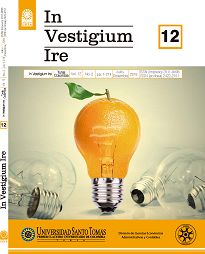Proposition pédagogique pour développer la compétence pragmatique a travers lapplication de certains guides d'apprentissage utilisant des eléments esa
##plugins.themes.bootstrap3.article.main##
Résumé
Cet article analyse les résultats d'une recherche a petite échelle axée sur le développement d'une compétence généralement négligée en classe. L'objectif était de travailler a travers l'application d'une proposition pédagogique qui favorise un environnement propice aux échanges linguistiques. Le projet a été appliqué a des éleves de septieme année d'un établissement privé qui n'étaient pas habitués a effectuer des actes de langage comme activités de classe. Les dialogues ont été réalisés par les étudiants afin que ceux-ci se sentent en confiance et puissent maintenir des conversations élémentaires. Les résultats révelent que si les étudiants sont formés pour développer des activités de communication ora le en utilisant une langue étrangere, ils améliorent progressivement la capacité pragmatique.
##plugins.themes.bootstrap3.article.details##
Comment citer
López Alarcón, L. A. (2019). Proposition pédagogique pour développer la compétence pragmatique a travers lapplication de certains guides d’apprentissage utilisant des eléments esa. In Vestigium Ire, 12(2), 171-186. Consulté à l’adresse http://revistas.ustatunja.edu.co/index.php/ivestigium/article/view/1727
Numéro
Rubrique
Artículos Núm. 12-2
Références
Harmer, J. (2007). How to teach English. England: Pearson Longman.
Bachman, L. (1990): Fundamental Considerations in Language Teaching.
Oxford: Oxford University Press
Canale, M. (1988). The measurement of communicative competence. Annual review of applied linguistics, 8, 67-84
Cohen, L., & Man ion, L. (1994). Research methods in education. Fourth Edition. London and New York: Routledge.
Crystal, D. (1997).A dictionary of linguistics and phonetics. 4th edition. Cambridge, MA: Blackwell.
Gonzalez, E. (2008). English Teachers' Beliefs about Communicative Competence and their Relationship with their Classroom Practice. PROFILE: lssues in Teachers' Professional Development 10 pp. 75- 89
Mendoza, E. (2004). lmplicit and Explicit teaching of grammar: an empirical study. PROFILE: lssues in Teachers' Professional Development. 5 pp. 7- 22.
Tello, Y. (2006). Developing Pragmatic Competence in a Foreign Language. Colombian Applied Linguistics Journal 8 pp. 169- 182
Yalden, Jan ice (1996). Principles of course design far language teaching. England: Cambridge university press.
Aguirre, J and Ramos, B. (2009). Guidance in Reading Strategies: A First Step Toward
Bachman, L. (1990): Fundamental Considerations in Language Teaching.
Oxford: Oxford University Press
Canale, M. (1988). The measurement of communicative competence. Annual review of applied linguistics, 8, 67-84
Cohen, L., & Man ion, L. (1994). Research methods in education. Fourth Edition. London and New York: Routledge.
Crystal, D. (1997).A dictionary of linguistics and phonetics. 4th edition. Cambridge, MA: Blackwell.
Gonzalez, E. (2008). English Teachers' Beliefs about Communicative Competence and their Relationship with their Classroom Practice. PROFILE: lssues in Teachers' Professional Development 10 pp. 75- 89
Mendoza, E. (2004). lmplicit and Explicit teaching of grammar: an empirical study. PROFILE: lssues in Teachers' Professional Development. 5 pp. 7- 22.
Tello, Y. (2006). Developing Pragmatic Competence in a Foreign Language. Colombian Applied Linguistics Journal 8 pp. 169- 182
Yalden, Jan ice (1996). Principles of course design far language teaching. England: Cambridge university press.
Aguirre, J and Ramos, B. (2009). Guidance in Reading Strategies: A First Step Toward


